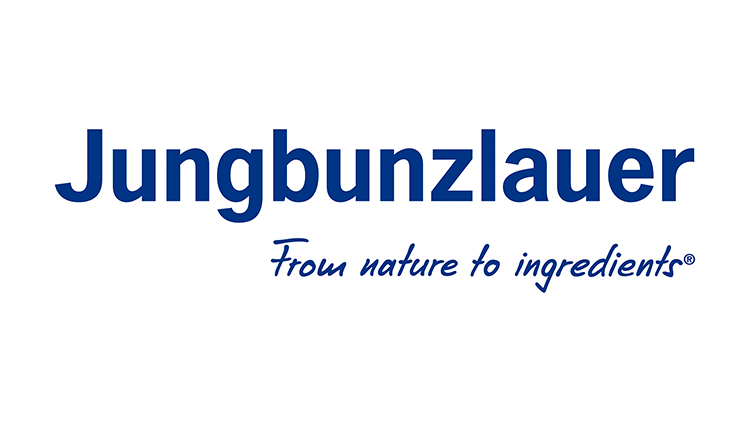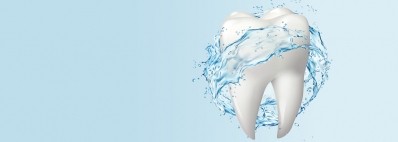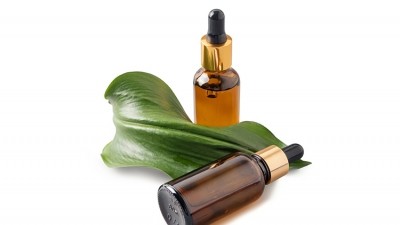Promotional Features
Zinc Lactate and Triethyl Citrate - natural ingredients for aluminium-free deodorants
Natural and safe personal care ingredients are key to address current minimalistic trend. In the deodorant sector, this trend is reflected above all in natural and aluminium-free deodorants.
To simplify their increasingly complex lives, consumers look for simple, transparent and effective products. This desire combines with a growing awareness for health and environmental safety. In the personal care sector, this minimalistic trend is seen in shorter ingredient lists, natural ingredients, transparent ingredient functions and free-from claims. Natural and safe personal care ingredients are a key to address minimalism; while multifunctionality of ingredients supports focus on essentials. In the deodorant sector, this trend is reflected in natural and aluminium-free deodorants[1].
Deodorants
Deodorants are intended to prevent underarm odour, which is perceived as unpleasant to the general public. This odour is caused by bacteria on our skin, breaking down certain organic substances in our sweat. These bacterial breakdown by-products have an unpleasant odour[2]. Deodorants are designed to reduce or prevent underarm odour with various active ingredients that employ different mechanisms of action. Several active ingredients are combined in one formulation for optimal efficacy. Odour absorbers can either bind or eliminate volatile odour components while odour-covering agents do simply cover odour. Antimicrobial agents and enzyme inhibitors directly influence the bacteria and prevent the degradation of the organic body products. Antiperspirants, on the other hand, reduce the formation of moisture by temporarily blocking the sweat glands. Widely used antiperspirants are aluminium salts. Their mechanism of action lies in the dissolution of the aluminium salts in the skin surface moisture and thereby the formation of gels. These gels reduce the release of sweat by creating a temporary ‘plug’ for the sweat gland[3].
The safety of aluminium salts in deodorants is discussed controversially. Some publications associate the absorption of aluminium by the skin with an increased risk of Alzheimer’s disease and breast cancer. Although there is no scientific evidence of negative health impacts caused by the absorption of aluminium from deodorants into the body[4], consumers remain sceptical about aluminium salts in deodorants. As a result, the demand for aluminium-free deodorants is growing.
Triethyl citrate and zinc lactate are excellent personal care ingredients to formulate natural and aluminium-free deodorants with high efficacy and a limited ingredient list.
Triethyl Citrate
Triethyl citrate is a widely used personal care ingredient with multiple functions. It is a colourless and odourless oily liquid, produced by esterification of fermentative-derived citric acid and ethanol. The applications of triethyl citrate in the personal care sector are broad. In cream formulations, it is an effective emollient. As a solvent and fixative, it is used in flavours and fragrances, and it is a well-known deodorising agent which functions as an enzyme inhibitor[5].
When triethyl citrate is applied on the skin of the armpit, an enzymatic hydrolysis starts forming citric acid and ethanol. Citric acid lowers the skin pH, which leads to the deactivation of bacterial enzymes, and reduced decomposition of skin products ergo reduced odour[5].
Zinc Lactate
Zinc lactate, the zinc salt of lactic acid, is a personal care ingredient known for its antimicrobial properties. It is a white, odourless and highly soluble powder. The salt is produced by the complete neutralisation of lactic acid with a highly pure zinc source and subsequent crystallisation for purification. Zinc lactate is used in the supplement, beverage and oral care sector. In skin care products, it is known for its anti-inflammatory and skin-soothing properties.
Zinc salts are suitable ingredients for deodorants as they act as antimicrobial agents. Odour-absorbing properties are observed in water-soluble zinc salts[6,7].
Zinc Lactate as booster of Triethyl Citrate in deodorants
The effectiveness of zinc lactate as booster for triethyl citrate within a basic deodorant formulation is proven with standardised test methods.
In a first step, the preservation efficacy of triethyl citrate and zinc lactate was tested with a European pharmacopeia (Ph. Eur.) 5.1.3. test[8]. A basic deodorant formulation with 5% triethyl citrate fails the Ph. Eur. 5.1.3. as it has no sufficient efficacy against A. brasiliensis. An additional preservation support is needed for this formulation. The addition of 3% zinc lactate enables the formulation to pass criterion B in the Ph. Eur. 5.1.3. test. The combination of zinc lactate and triethyl citrate supports the self-preservation of deodorants.
An antimicrobial deodorant ingredient has to be effective against certain microorganisms in the armpits. However, only a moderate reduction is desired without having a negative effect on the overall skin microbiome. The antimicrobial effectiveness of zinc lactate in combination with triethyl citrate against the odour causing microorganisms was shown in an in vitro disinfection kinetics test (in accordance to Ph. Eur. 5.1.3.).
In-vivo tests were also performed. An external panel test validated the excellent deodorant performance of the deodorant formulation with 5% triethyl citrate and 3% zinc lactate. This basic deodorant formulation with 5% triethyl citrate and 3% zinc lactate was tested against a formulation with only 5% triethyl citrate. Most panellists preferred the formulation with the combination of zinc lactate and triethyl citrate. The addition of zinc lactate was evaluated with good performance and longer lasting deodorising effect compared to the formulation with only triethyl citrate.
Summary
Overall, zinc lactate is an excellent booster for triethyl citrate, making natural and aluminium-free deodorants more effective. Both personal care ingredients provide multiple functions, enabling the formulation of minimalistic products to perfectly match the consumer’s desire for simple and natural but effective deodorants.
References
[1] Innova Market Insights. Innova Category Review - Deodorants, 2021.
[2] S. Ödborn, The Science of Deodorants, KTH Royal Institute of Technology, Sweden, 2019.
[3] C. Callewaert, J. Lambert, T. Van de Wiele, Exp. Dermatol. 2017, 26, 388–391.
[4] Scientific Committee on Consumer Safety: Opinion on the safety of aluminium in cosmetic products – Submission II. Preliminary version of 30–31 October 2019, final version of 03–04 March 2020, SCCS/1613/19.
[5] H. Niendorf, Pers. Care Mag. 2012, September, 39–42.
[6] J.-M. Ascione, S. Forestier, I. Rollat-Corvol, Deodorant Composition Comprising a Water-Soluble Zinc Salt as Odor-Absorbing Agent. US patent 6632421B2, 2003.
[7] B. Traupe, S. Brinkmann, M. Urban, A. Scholz, S. Kanninck, M. Hallmann, I. Oelrichs, Verbesserter Schutz vor Körpergeruch. European patent EP 2 934 459 B1, 2013.
[8] Eur. Pharmacopeia 10th Edition, 2019.
Product Category: Skin Care





